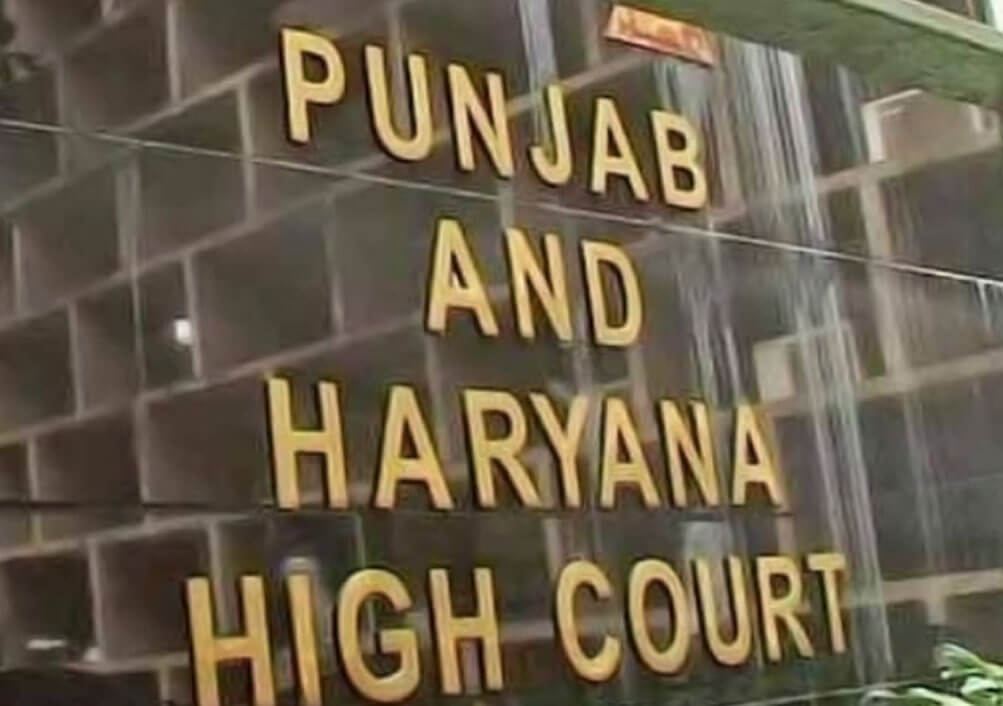Even in absence of formal letter of authority, Assistant working in Haryana Financial Corp. could sign & verify pleadings on behalf of such Corporation, by virtue of office which he held: P&H HC

Read Order: Sanjiv Kumar & Another v. Haryana Financial Corporation & others
Monika Rahar
Chandigarh, February 9, 2022: The Punjab and Haryana High Court has held that even in the absence of any formal letter of authority (no resolution by the Corporation) or power of attorney having been executed, a person by virtue of the office which he holds, could sign and verify the pleadings on behalf of the Corporation.
The Bench of Justice Sant Parkash made the above stated observation in a cheque bounce case where the petitioner (director of the debtor firm which got issued dishonored cheques through him in favour of complainant- corporation) argued that the notice of dishonour was served upon the petitioners by the Branch Manager of respondent whereas the complaint was preferred through an Assistant of the Corporation.
While placing reliance on the Supreme Court’s decision in United Bank of India v. Naresh Kumar & others, 1997 Supreme Court-3, the Court opined, that procedural defects which do not go the root of the matter should not be permitted to defeat a just cause, in other words, it was stated by the Court that a substantive right should not be allowed to be defeated on account of a procedural irregularity which is curable.
Further, on the power of revision, the Court asserted, “While exercising the revisional jurisdiction, this Court need not sit in the armchair of the judgments of the courts below. It is enough to see as to whether there is any perversity in the orders of the courts below while appreciating evidence of finding regarding the facts.”
In the case at hand, the complainant/ first respondent (Corporation) advanced credit to the Firm, the directors of which were the petitioners. The firm, through petitioner (Sanjiv Kumar) issued two account payee post dated cheques in favour of complainant-Corporation for the payment of amount due towards the petitioners. However, on presentation of cheques, the same were dishonored. Legal notice was served upon the petitioners but they failed to indemnify the complainant.
Consequently, complainant filed a complaint under Section 138 of the Negotiable Instruments Act, 1881 (NI Act), wherein the Trial Court held the petitioners guilty for commission of offence punishable under Section 138 of the NI Act. This decision was challenged before the court of Sessions which was also dismissed by impugned judgment. Hence, the present petition was filed against the order of the first appellate court.
The petitioners’ counsel contended that it was the duty of complainant to show that cheques were issued by the petitioners in discharge of their liability and that to prove this fact, statement of account and other relevant documents pertaining to loan advanced to the petitioners were not placed on record by the complainant.
It was further argued that the notice of dishonour was served upon the petitioners by the Branch Manager of respondent whereas the complaint was preferred through an Assistant of the Corporation. It was further his case that once the complaint was filed by a person different from the person who served notice, the complaint was liable to be dismissed.
At the outset, the Court observed that the cheques issued by the petitioner bounced and the complainant was not indemnified even on service of a legal notice. The Court noted that there was no dispute about the signatures found on the cheques and also their execution.
On the presumption which arises when the signature of the cheques and tier executions were established, the Court added, “Once the signature on the cheques and also the execution of the cheque are admitted, there is a statutory presumption that the cheques were issued for legally enforceable debt and the said presumption is a rebutted presumption. The petitioner has not rebutted the statutory presumption.”
Further, the Court concluded that both the courts below found the petitioner guilty for the offence under Section 138 of the NI Act and that the judgments of the courts below were concurrent since the issuance of the cheques as also the signature found in the cheques were admitted. The fact that the statutory presumption was not rebutted by the petitioner, was considered by the Court.
Thus, the Court found no perversity in the judgments of both the courts below, however, considering the facts and circumstances of the case the court showed leniency towards the petitioner as the period of sentence qua imprisonment of petitioner was reduced to the period already undergone by him, while maintaining the conviction.
Sign up for our weekly newsletter to stay up to date on our product, events featured blog, special offer and all of the exciting things that take place here at Legitquest.




Add a Comment